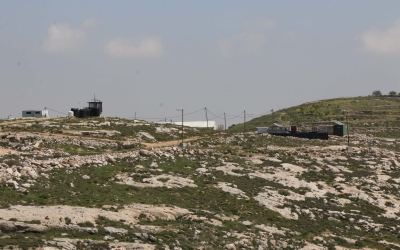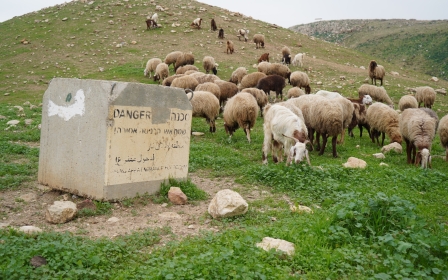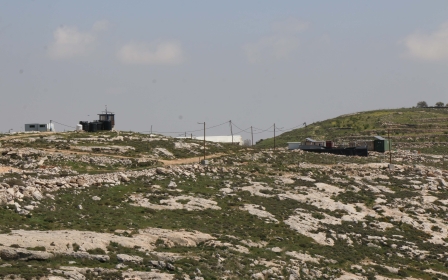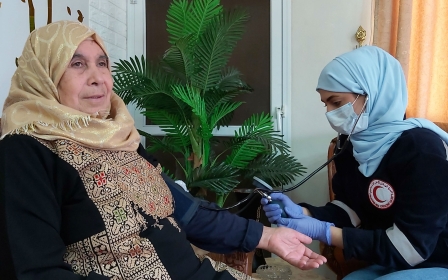Coronavirus: Amid lockdown, Israel delivers demolition orders to Palestinian village
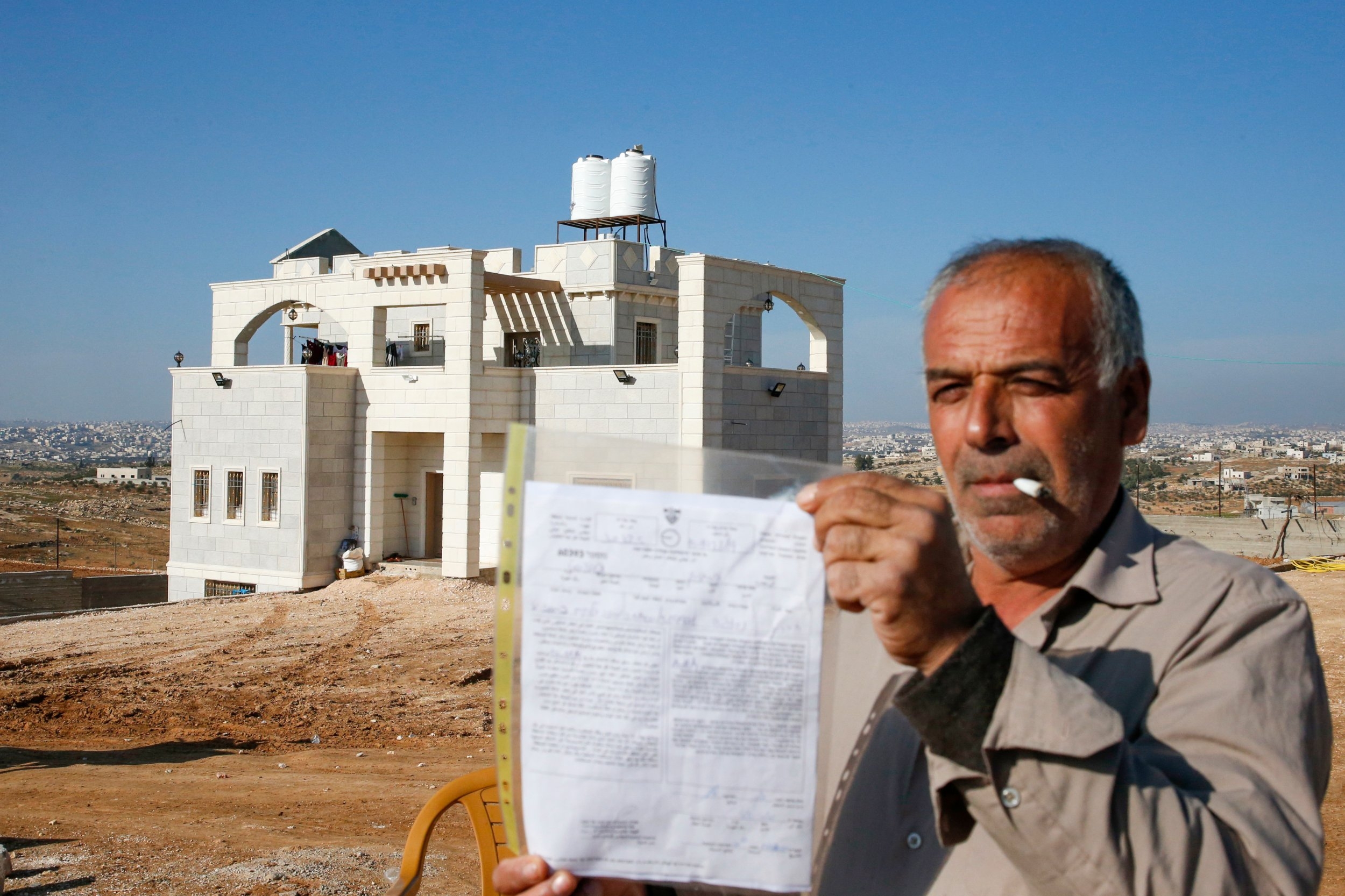
When Ibrahim Issa and his neighbors saw an Israeli military vehicle driving through Qarawat Bani Hassan on Tuesday, they suspected it was just another ordinary patrol through the Palestinian village, which is surrounded by a number of illegal Israeli settlements.
“But then we saw the car stopping at houses and posting things on doors, and we knew something was wrong,” Issa told Middle East Eye.
New MEE newsletter: Jerusalem Dispatch
Sign up to get the latest insights and analysis on Israel-Palestine, alongside Turkey Unpacked and other MEE newsletters
In a matter of hours, authorities from Israel’s Civil Administration, the military body that enforces Israeli policy in the occupied West Bank, had posted 22 demolition and stop-work orders on Palestinian properties in the village.
Issa’s newly built home was one of 12 houses, seven agricultural rooms, and three internationally funded water collection wells that received an order, under the pretext that they were constructed “illegally” in Area C - the more than 60 percent of the West Bank under full Israeli military control.
“I built this house for my son last year when he got married, and now he lives here with his wife,” Issa said, adding that he was almost done building a second unit for his younger son to move into eventually.
“If this demolition goes through, it will be financially devastating,” he said, adding that he had invested nearly 300,000 shekels ($85,000) into the home.
In addition to the financial costs, Issa told MEE that the home was a labour of love into which he and his sons had poured years of time and energy.
“We worked so hard on this home, and now they just want to destroy it, and for what?” he asked. “I will stand in front of their bulldozers before I let them destroy my dreams or those of my children.”
‘We have no other choice’
Qarawat Bani Hassan, known to residents as Bani Hassan, is a small village of 6,000 residents in the northwestern West Bank. Surrounding its southern and eastern edges are at least five Israeli settlements and outposts, all deemed illegal under international law.
“Our village spans around 13,000 dunams (1,300 hectares), but we can only actually use 850 dunams (85 hectares) for building and construction,” Bani Hassan Mayor Tamer Rayyan, 35, told MEE.
More than 90 percent of the village’s lands fall in Area C, meaning that residents need to obtain Israeli permits if they want to build or grow crops on their land. However, these permits are nearly impossible to obtain, with rights groups reporting that 98 percent of permit applications were rejected between 2016 and 2018.
“The reason people build in Area C even though they know it's not allowed is because they have no other choice,” Rayyan said. “The families in the village are getting larger, and we need more space for the new generation to grow.”
According to Rayyan, the village had only been subjected to two other instances of home demolitions, in 1991 and 2002.
The mayor said he suspected the onslaught of demolition orders could be due to the fact that with all of their free time under coronavirus lockdown, village residents have been spending much more time cultivating their lands and building their homes, something he says has bothered nearby settlers.
“In the past month, soldiers have come and arrested five people that were working on building their homes,” he said. “In another instance, they arrested someone for making his animals graze on Area C land, and they made him sign papers saying he would not go back to that area, even though he owns the land.”
“They always say it's because of security, but we know they just want to cage up Palestinians in small areas and not let us live freely on our land.”
Stuck between pandemic and occupation
For residents of Bani Hassan, the most shocking part of the demolition and stop-work orders was the context in which they were delivered.
'People are scared for their health and their lives, but Israel is only concerned about destroying Palestinian homes'
- Tamer Rayyan, mayor of Bani Hassan
“We were really surprised to get these orders during this time,” Rayyan told MEE. “We are in the midst of a global pandemic. Everywhere in the world, including in Palestine, people are scared for their health and their lives, but Israel is only concerned about destroying Palestinian homes.”
The presence of soldiers over the past few weeks has only further stoked fears in the village, Rayyan said, adding that residents were scared to go work on their homes or their land for fear of coming into contact with Israeli soldiers and potentially contracting the virus.
“With the coronavirus around us, we should be worried about keeping our families safe,” Issa told MEE. “But instead, we have to now worry about keeping our homes safe too.”
“The international community needs to look and see what’s happening in Palestine,” he continued. “We are supposed to stay at home to be safe from the virus, but soon, we won’t have any homes to go to.”
Middle East Eye delivers independent and unrivalled coverage and analysis of the Middle East, North Africa and beyond. To learn more about republishing this content and the associated fees, please fill out this form. More about MEE can be found here.



